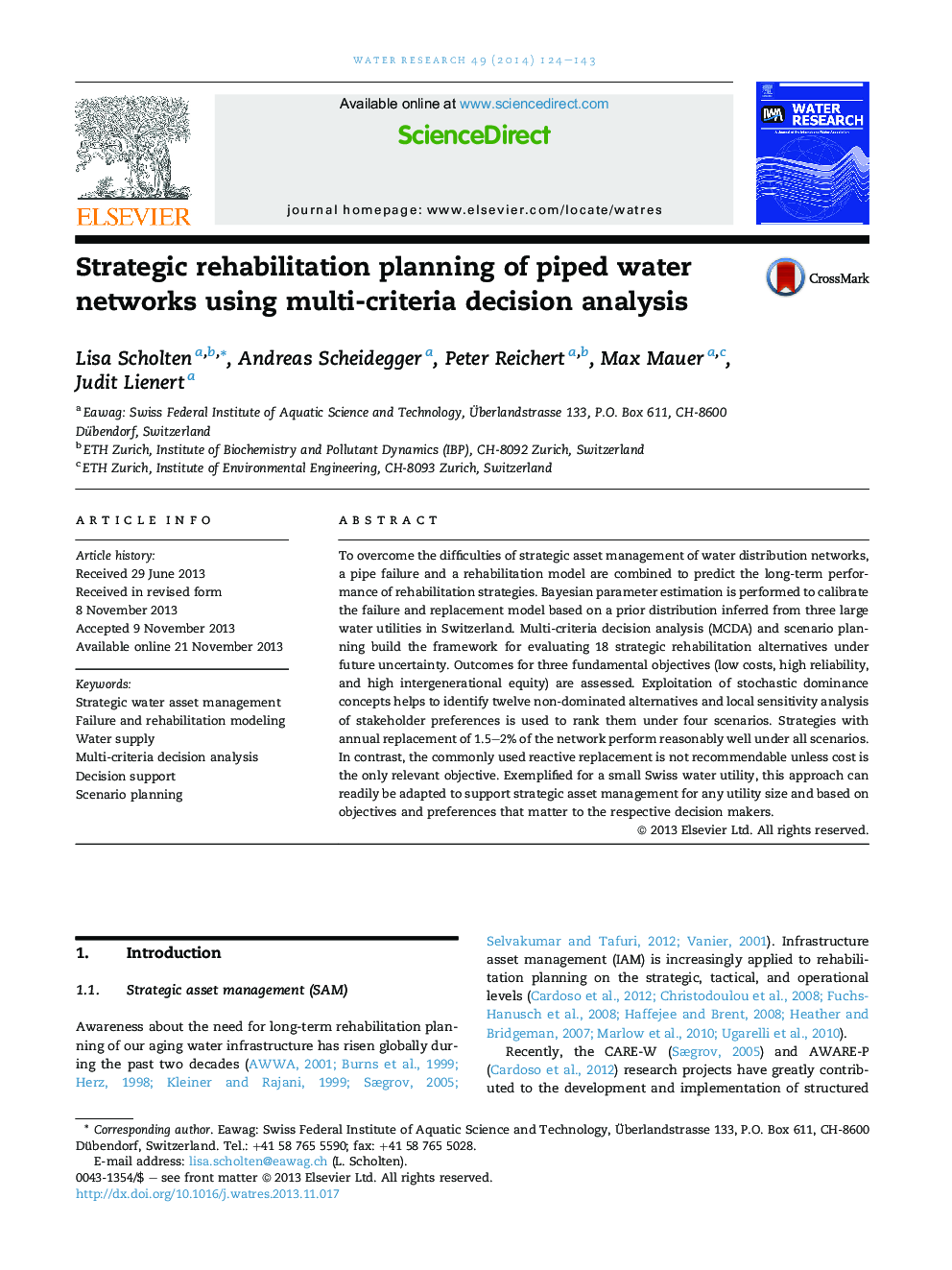| Article ID | Journal | Published Year | Pages | File Type |
|---|---|---|---|---|
| 4481696 | Water Research | 2014 | 20 Pages |
•This approach improves strategic rehabilitation planning of water networks.•A prior distribution of failure model parameters for small utilities was obtained.•4 out of 18 rehabilitation strategies are non-dominated regarding 3 criteria.•The ranking of non-dominated alternatives is mostly stable to preference changes.•Alternatives are compared under 4 scenarios of urban/socio-economic development.
To overcome the difficulties of strategic asset management of water distribution networks, a pipe failure and a rehabilitation model are combined to predict the long-term performance of rehabilitation strategies. Bayesian parameter estimation is performed to calibrate the failure and replacement model based on a prior distribution inferred from three large water utilities in Switzerland. Multi-criteria decision analysis (MCDA) and scenario planning build the framework for evaluating 18 strategic rehabilitation alternatives under future uncertainty. Outcomes for three fundamental objectives (low costs, high reliability, and high intergenerational equity) are assessed. Exploitation of stochastic dominance concepts helps to identify twelve non-dominated alternatives and local sensitivity analysis of stakeholder preferences is used to rank them under four scenarios. Strategies with annual replacement of 1.5–2% of the network perform reasonably well under all scenarios. In contrast, the commonly used reactive replacement is not recommendable unless cost is the only relevant objective. Exemplified for a small Swiss water utility, this approach can readily be adapted to support strategic asset management for any utility size and based on objectives and preferences that matter to the respective decision makers.
